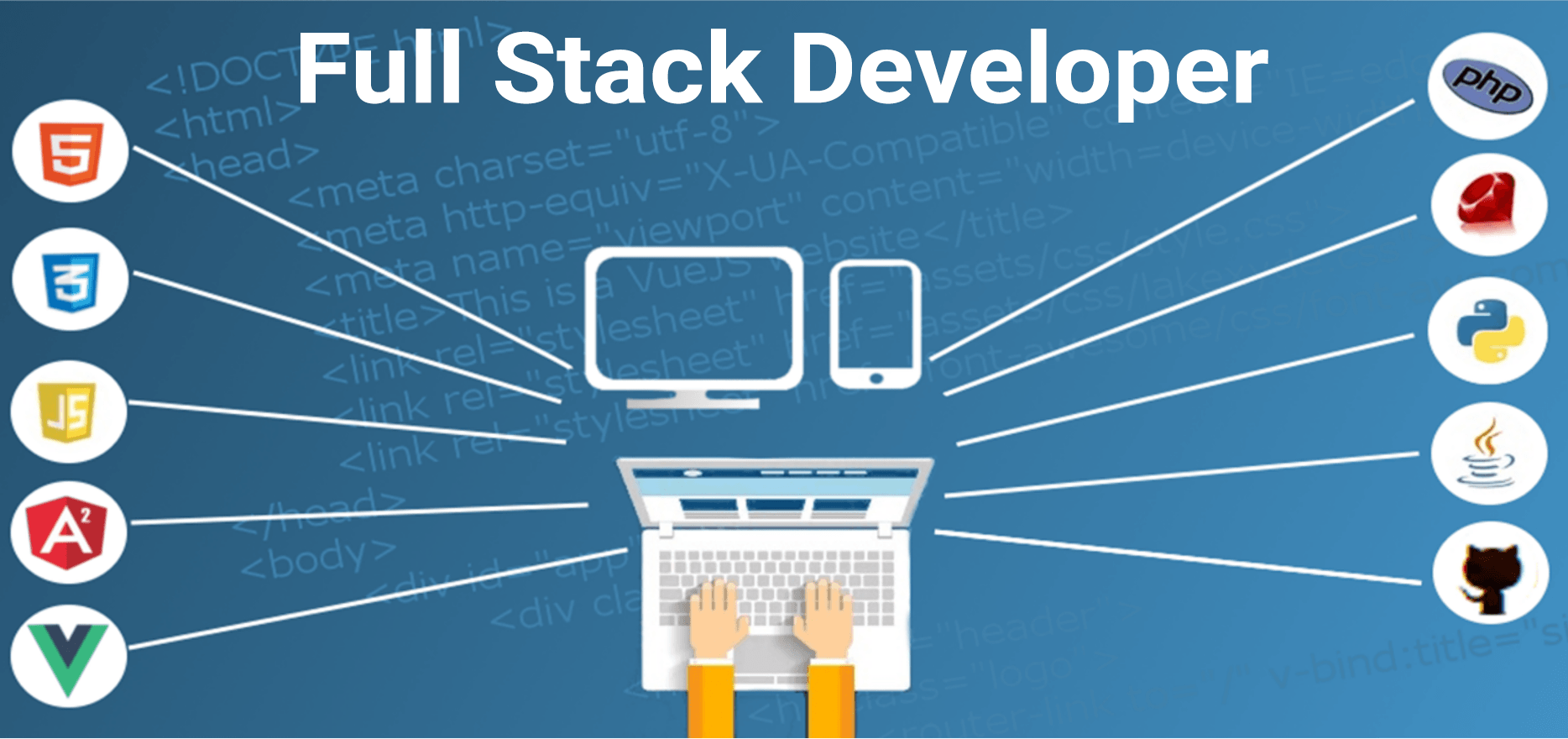
Webpages play an important role in the building of Websites. A programming language is required to design a web application. The programming language that is responsible for the designing of web applications is called Full Stack. Full Stack is divided into two developmental phases, namely, Front-End, and Back-End. Full Stack is a combination of both Front-End and Back-End languages.
What is Full Stack?
An entire technology stack, or the collection of tools required to swiftly and effectively create an end-to-end application, must be understood by full stack developers. For instance, they need to be familiar with working with MongoDB, Express, Angular, and Node if they wish to build an application utilizing the MEAN stack. In the early stages of a project, full stack developers ought to be able to determine whether the chosen technologies are the best option.
Languages Used by Full Stack
A combination of Front-End languages and Back- End languages, is used for Full Stack, in designing a web application.
Front End Language
Some of the languages used in Front End frameworks are HTML, CSS, JavaScript, and React. These languages are used in creation of the front end elements of a web application.
We’ll now look into the explanation of Front End languages.
i) HTML
HTML stands for Hyper-Text Markup Language. It is used in the designing of web pages. It is used in structuring a web page and its contents. It consists of tags and other elements. For example, it has the <p> (paragraph) tag. <P> is used to define a paragraph.
ii) CSS
CSS stands for Cascading Style Sheet. It is used to style the web pages, and layout the web pages. The color, font, size, spacing between elements, positioning of elements, background images or background colors, different displays for various devices and screen sizes, and much more can all be controlled with CSS. It has three types:
a) Inline CSS
b) Embedded CSS
c) External CSS
a) Inline CSS
To apply a particular style to a single HTML element, an inline CSS is used. This type uses the style attribute of HTML.
b) Embedded CSS
A style for a single HTML page is established using an internal CSS. A style element in the head section of an HTML page contains the definition of an internal CSS.
c) External CSS
To define their appearance, many HTML pages rely on an external style sheet. Each HTML page should contain a link to an external style sheet if you choose to use one.
iii) JavaScript
A dynamic computer programming language is called JavaScript. Its implementations enable client-side scripts to interact with users and create dynamic pages, and it is most frequently used as a component of web pages. It is an object-oriented programming language that may be interpreted.
iv) React
React is a JavaScript library to build user interfaces. It is an open source language. It is declarative and efficient.
Back-End Languages
i) PYTHON
Apart from Data Science and Internet of Things (IoT), PYTHON is also used in web applications. Since PYTHON has a huge collection of libraries, it is used in designing Web Applications. The use of libraries makes the work easier for the developers. Some of the frameworks used are Flask, Django, etc.
ii) PHP
PHP stands for Hyper-Text Preprocessor. It is an interpreted language, and runs on almost all the Operating Systems. It has cross platform and interoperability features.
iii) JAVA
Another excellent programming language for developing the backbone of a website is Java. The development of enterprise-scale online apps as well as desktop, Android, scientific, and other types of applications is frequently done using object-oriented programming languages. The main benefit of utilizing Java is that it adheres to the Write Once, Run Anywhere (WORA) principle, meaning that Java code that has already been compiled can be run on any platform that supports Java without the need for further compilation.
Conclusion
In this article, we have discussed the definition of Full Stack, and have explained the different types of languages that are used in designing a web application.There are lots of institutes which help candidates in securing a job at FAANG companies as a Full Stack developer. At SkillSlash, there is a course for working professionals to equip themselves in the domain of Full Stack. This institute provides 1:1 mentorship, and makes candidates industry ready by making them work on live projects and providing them with job assistance programs. Skillslash also has in store, exclusive courses like Data Science Course In Bangalore, Full Stack Developer Course and Data Structure and Algorithm and System Design Course to ensure aspirants of each domain have a great learning journey and a secure future in these fields. Contact the student support team today to know more about the program and how it can benefit you.



























